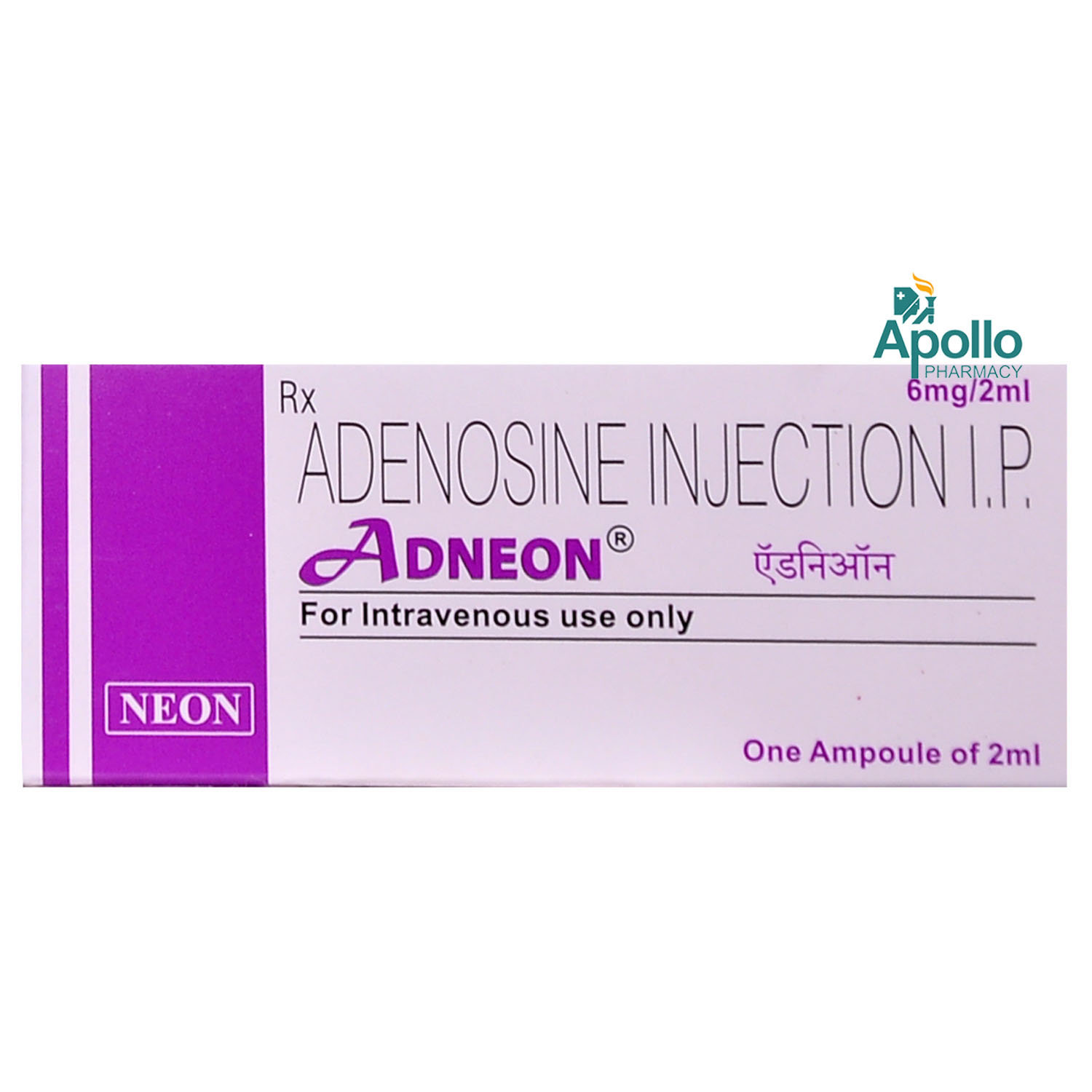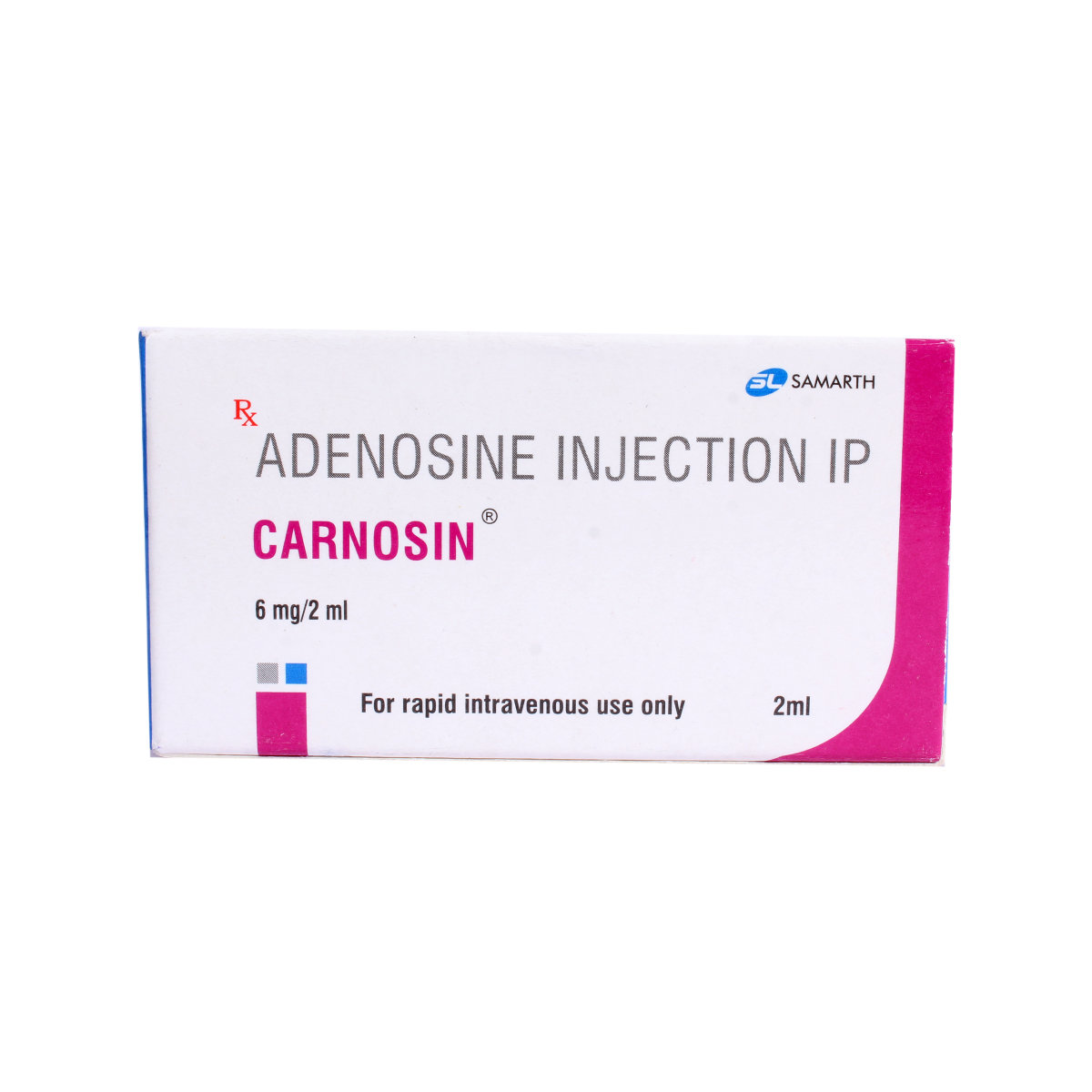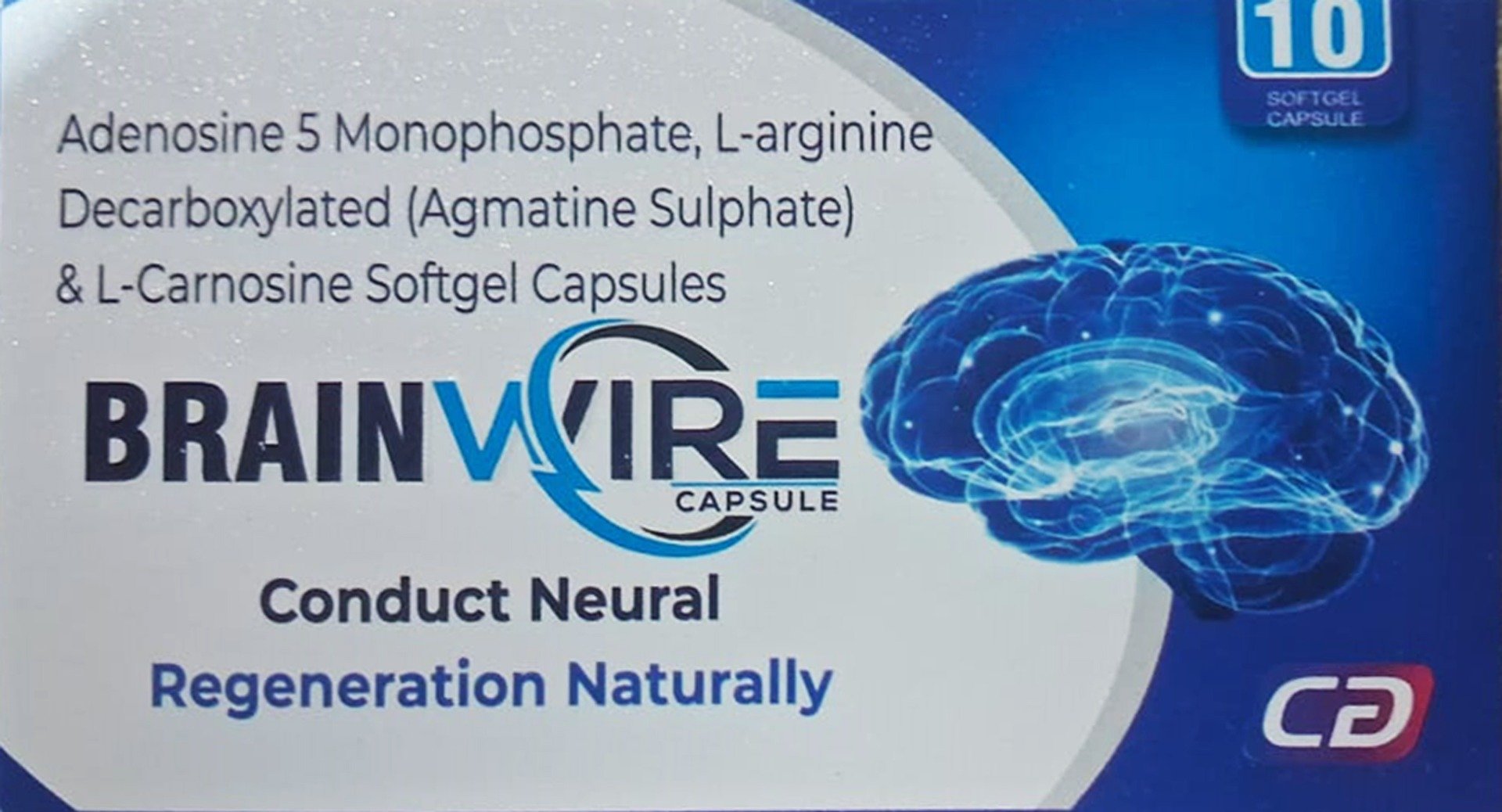Adenosine
About Adenosine
Adenosine belongs to a class of antiarrhythmic medications primarily used to treat a condition called paroxysmal supraventricular tachycardia (including a condition called Wolff-Parkinson-White syndrome). This condition is a form of abnormal cardiac rhythm or arrhythmia. It happens when the upper chamber of the heart produces a short circuit beat. As a result, the pulse is regular yet fast, starting and stopping suddenly. Besides, Adenosine is used as an aid to doctors to understand how your heart is working.
Adenosine contains adenosine, which works by slowing down the electrical impulses which control the heart rhythm. This allows the heart rhythm to return to normal.
Adenosine is only given in hospitals. It is provided to you as an injection by an experienced healthcare professional. Adenosine may cause side effects such as chest pain or pressure on the chest, feeling dizzy or light-headed, feeling sick (nausea), headache, unusual skin sensations, uneven heartbeat, and nervousness. Most of these side effects of Adenosine do not require medical attention and gradually resolve over time. However, if the side effects persist or worsen, reach out to your doctor.
Before prescribing the Adenosine, let your doctor know about all your medical conditions, allergic reactions, and all medications you are using. And also, inform your doctor if you are pregnant or planning pregnancy so that your doctor will weigh the benefits and potential risks before prescribing Adenosine. Avoid driving or operating tools or machinery as Adenosine may cause dizziness or light-headedness. Do not consume alcohol while on treatment with Adenosine.
Uses of Adenosine
Medicinal Benefits
Adenosine is an antiarrhythmic medication used to address a condition known as paroxysmal supraventricular tachycardia. (Including a condition called Wolff-Parkinson-White syndrome). This is when the heart pulses too quickly. Adenosine works by slowing down the electrical impulses that regulate the heart rhythm. This enables the heart rhythm to return to normal. Aside from that, Adenosine is used to help doctors comprehend how your heart works.
Directions for Use
- Follow your doctor’s instructions on the dosage and timing of this medication to ensure safety.
- Adenosine will be administered by the doctor or healthcare professional in a medical setting.
- Do not self-administer.
Storage
Side Effects of Adenosine
- Slow heartbeat (bradycardia)
- Skipped heartbeats or extra heartbeats
- A heart problem called an AV block
- Heart problems which can be fatal (asystole)
- Uneven heartbeat
- Shortness of breath
- Chest pain or pressure in the chest
- Feeling dizzy or light-headed
- Feeling sick (nausea)
- Headache
- Unusual skin sensations such as burning and reddening
- Feeling nervous
Drug Warnings
Before taking the Adenosine, let your doctor know about all your sensitivities and all medications you are using. The presence of additional medical issues may impact the use of this medication, so inform your doctor if you have any other medical issues, especially asthma or any other lung disease or epilepsy or seizures or have recently had a heart transplant or have some other problems with your heart or heart rhythm or have severe low blood pressure.
Drug Interactions
Drug-drug interactions: Adenosine may interact with antipsychotic medication (e.g. haloperidol), and it should be used cautiously in patients receiving digoxin or digoxin and verapamil in combination.
Drug-food interactions: Limit or avoid consuming Caffeine and Nicotine foods or beverages.
Drug-disease interactions: Adenosine should be used with caution in patients with AV node dysfunction, cardiovascular dysfunction, severe low blood pressure, proarrhythmic effects (medication-induced side-effects) and bronchoconstriction (narrowing of the airways) or asthma or any other lung disease.
Drug-Drug Interactions Checker List:
Safety Advice

Alcohol
cautionConsuming alcohol while on treatment with Adenosine is not advisable as it may cause serious side effects.

Pregnancy
cautionIt is not known whether Adenosine can cause foetal harm if taken during pregnancy. It should be taken if clearly needed. If you are pregnant, inform your doctor. Your doctor will weigh the benefits and potential risks before prescribing Adenosine.

Breast Feeding
cautionIt is unknown if Adenosine passes into breastmilk. Inform your doctor if you are breastfeeding; your doctor will decide whether Adenosine can be taken by breastfeeding mothers or not.

Driving
cautionAdenosine causes drowsiness and dizziness, so drive only if alert while on treatment with this medicine.

Liver
safe if prescribedIt is generally safe to be taken Adenosine if you have liver problems. However, If you have a history of liver diseases, inform your doctor before receiving this injection.

Kidney
safe if prescribedIt is generally safe to be taken Adenosine if you have kidney problems. However, If you have a history of kidney diseases, inform your doctor before receiving this injection.

Children
cautionThere are no controlled studies on the use of Adenosine in children. Please consult your doctor if your child has PSVT.
Habit Forming
Diet & Lifestyle Advise
- Follow a well-balanced and healthy diet that includes vegetables, fruits, whole grains, legumes, omega-3-rich foods, and lean protein sources.
- Spend time with your loved ones to cope with stress and practice mindfulness techniques.
- Limit or avoid alcohol consumption.
- Quitting smoking is the best strategy to lower the risk of heart disease.
Patients Concern
Disease/Condition Glossary
Arrhythmia: Arrhythmia is a problem associated with the rate of rhythm at which the heart beats. Generally, in this condition, the heart beats too fast, too slow, or irregularly. It can lead to severe heart damage. A cardiac arrhythmia occurs when there are abnormal electrical signals in the heart. When the heart beats too fast, it is known as tachycardia; if it is too slow, it is called bradycardia. Treatment of arrhythmia includes drugs, medical procedures, implantable devices and sometimes surgery.
Supraventricular tachycardia (SVT): Supraventricular tachycardia (SVT) is a medical condition where your heart suddenly beats much faster than normal. SVT occurs when the electrical system that controls your heart rhythm is malfunctioning. This leads your heart to beat much faster suddenly. It can then slow down abruptly. A normal resting heart rate is 60 to 100 beats per minute (bpm). But with SVT, your heart rate suddenly goes above 100 bpm. This can happen when you're resting or doing exercise.
Paroxysmal supraventricular tachycardia: Paroxysmal supraventricular tachycardia (PSVT) is a form of arrhythmia or abnormal heart rhythm. It happens when a short circuit rhythm develops in the heart's upper chamber. This causes a regular but rapid heartbeat that begins and ends suddenly.
FAQs
Adenosine is used to treat Paroxysmal supraventricular tachycardia.
Adenosine contains adenosine, which works by slowing down the electrical impulses which control the heart rhythm. This allows the heart rhythm to return to normal.
Adenosine is contraindicated to use in a population with severely low blood pressure. So, people with severely low blood pressure should not take Adenosine.
Adenosine may cause unusual skin sensations such as reddening (with a feeling of heat) and burning sensations. In most cases, these side effects gradually resolve over time. However, if these persist or worsen, reach out to your doctor.
Adenosine may lower blood pressure. If this condition persists for a longer duration or if you already have low blood pressure, inform your doctor.
While taking Adenosine, it is important to monitor your heart rate, blood pressure, breathing, and oxygen levels. Your doctor will provide specific guidance on what to monitor based on your health conditions.
Immediately after taking Adenosine, you are advised to limit or avoid consuming foods and beverages containing caffeine and nicotine. Please, contact a doctor if you have any concerns.
Adenosine is administered by a qualified healthcare professional, directly into one of your veins. Adenosine is given rapidly over 2 seconds, to quickly slow down the heart rate and restore a normal heart rhythm. Do not self-administer.
The side effects of Adenosine include facial flushing, dyspnea (shortness of breath), chest pressure, and nausea. These side effects start immediately after Adenosine is given and usually last less than one minute. Please, contact a doctor if these continue longer.







